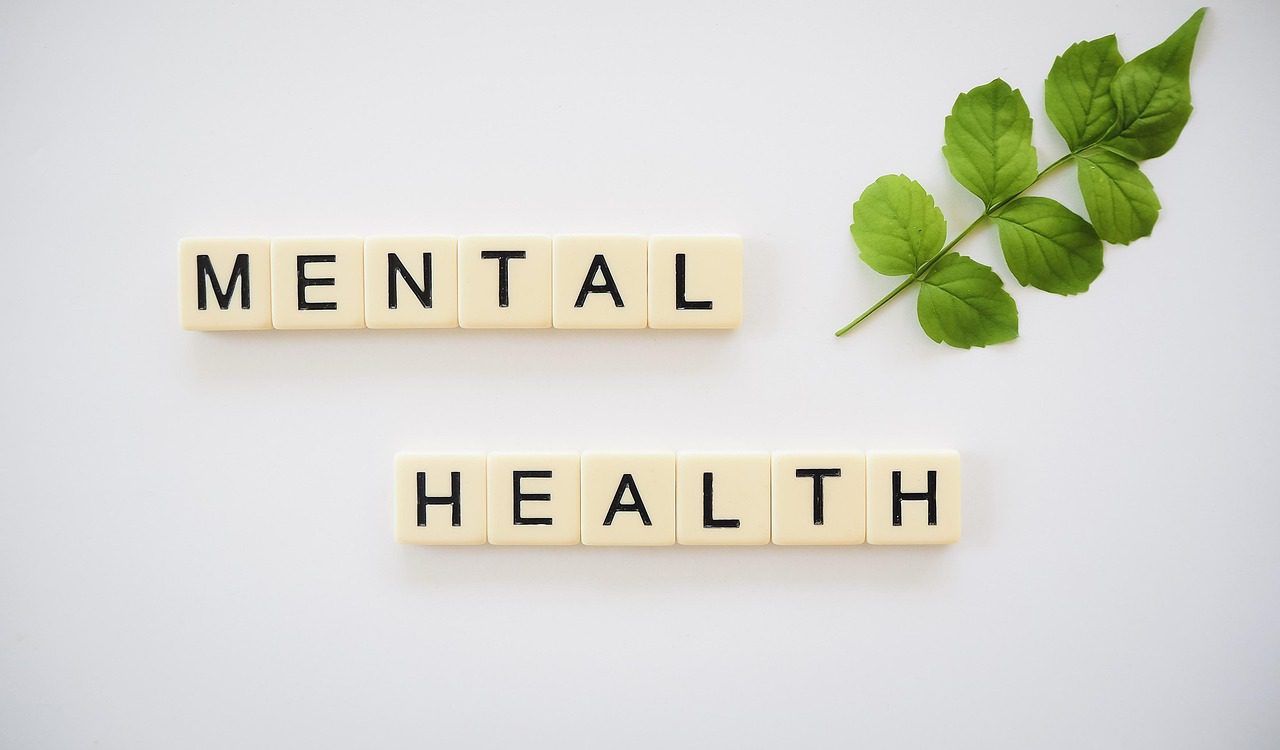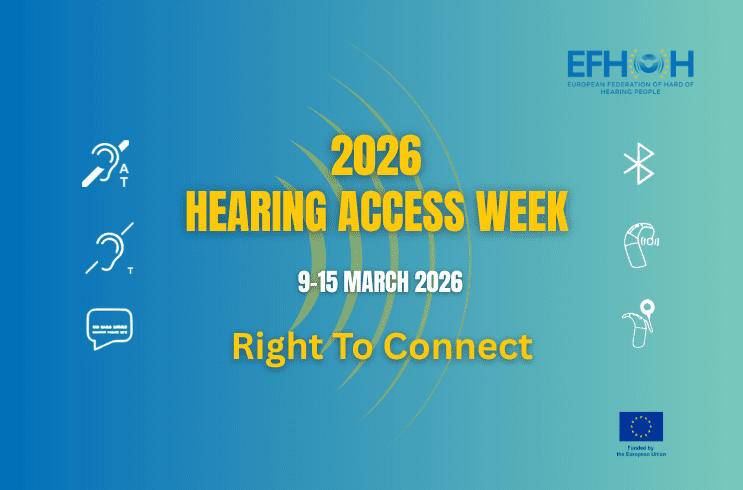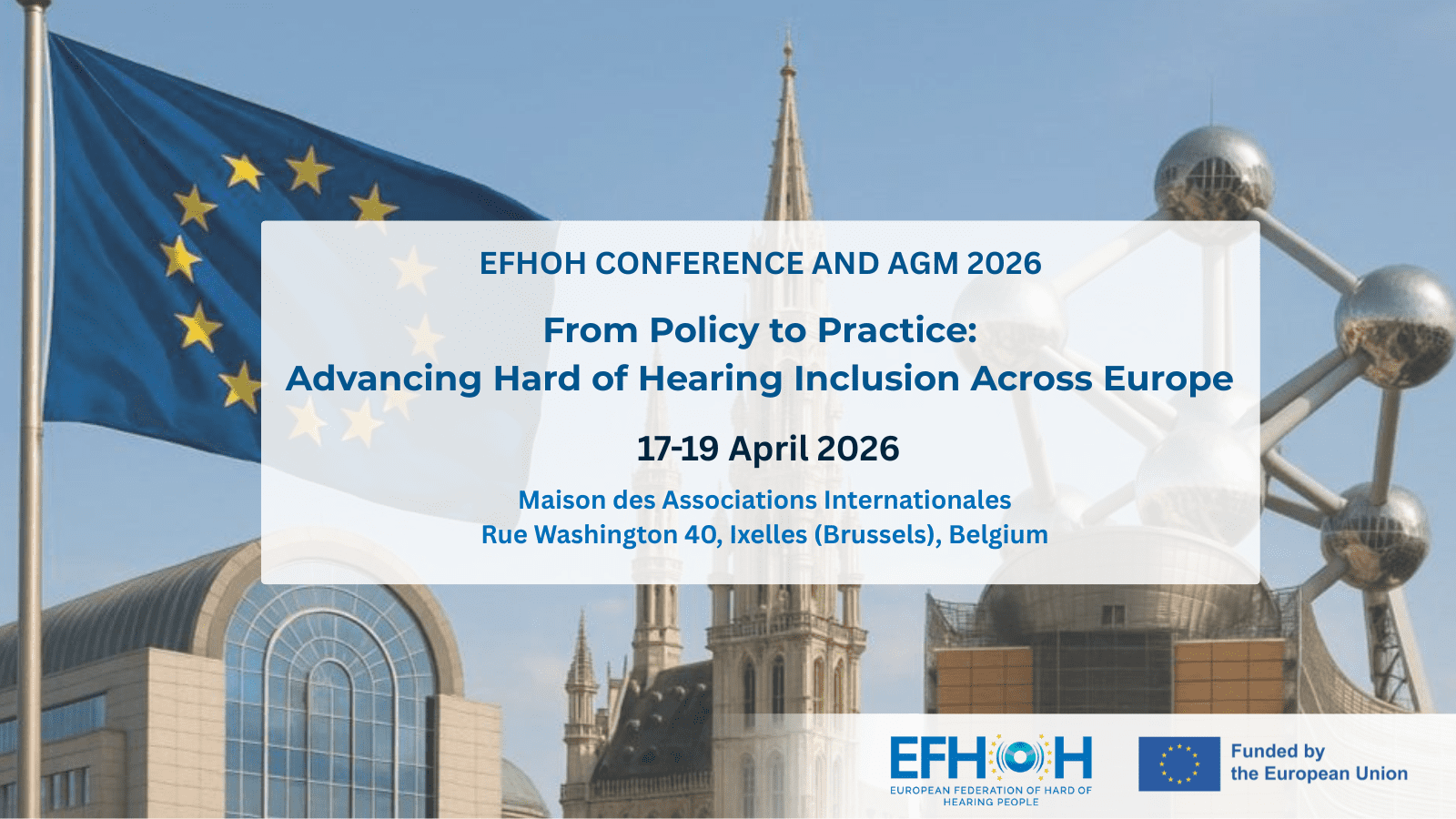
A major new international study has confirmed what EFHOH has long stressed in its advocacy: stigma around hearing loss continues to isolate people and harm mental health.
The research, published in a special issue of the International Journal of Audiology, found that one in three adults over 50 hide their hearing loss due to fear of judgment. Many participants described being stigmatized for their hearing difficulties, leading to feelings of loneliness, reduced quality of life, and a greater risk of depression.
Crucially, the study highlights that stigma is not primarily about wearing hearing aids. Instead, hard of hearing people worry more about the stigma of hearing loss itself, which can prevent them from seeking help and prolong the negative impact on their mental health.
For EFHOH, these findings confirm a reality faced by millions of Europeans. Hearing loss and mental health are closely linked, and urgent action is needed from policymakers and society to address this connection.
At our Conference on Hearing Loss and Mental Health in 2024, EFHOH launched the manifesto “Changing Mindsets: On Hearing Loss and Mental Health” which calls on the EU and its Member States to:
- Prioritize hearing loss and mental health in EU health priorities (2024–2029).
- Ensure affordable access to hearing aids, cochlear implants, and assistive devices.
- Integrate mental health into hearing care and rehabilitation strategies.
- Foster inclusive environments across education, work, and healthcare.
Stigma is a structural barrier that limits participation, damages mental health, and undermines equal opportunities for hard of hearing people. Tackling it requires political will, affordable hearing technology, accessible services, and public awareness to create safe and inclusive environments.
EFHOH will continue to work with European institutions, governments, and partners to ensure that hearing loss and mental health are recognized as urgent priorities.
Check the full research study.




